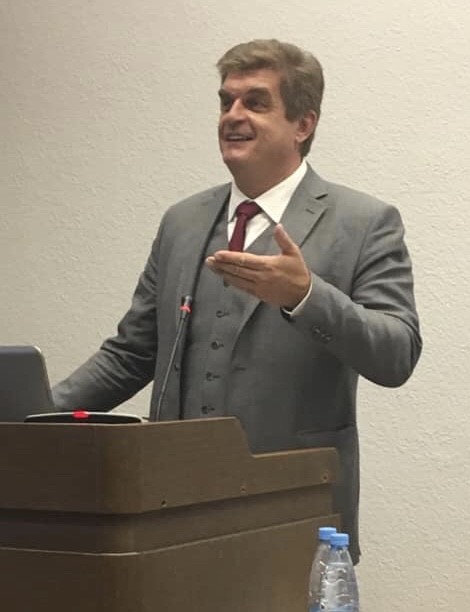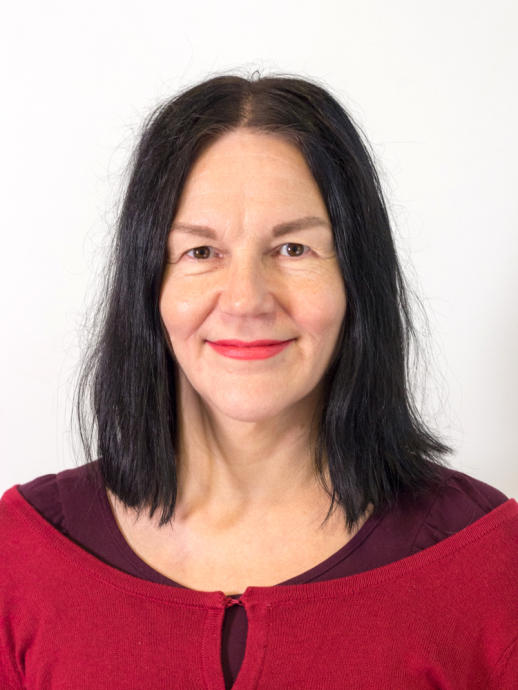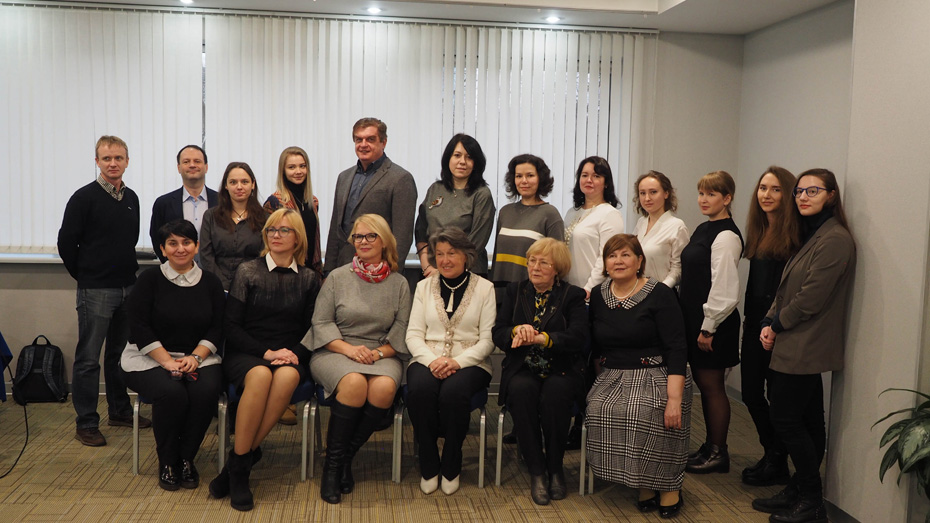Specifics of audiovisual translation discussed by the participants of the interdepartmental seminar on the study of modern languages and interpreting
Reference:
Alexey Kozulyaev - graduate of the Maurice Thorez Moscow State Pedagogical Institute (MSLU), teacher and translator (English, French, Spanish). In 2006, he graduated from the New York Film Academy with a degree in film production. Since 2011, he has been heading the RuFilms School of Audiovisual Translation, member of the European Association for Research in Audiovisual Translation, member of the International Association for Teaching Research, corresponding member of the Center for Research on New Translation and Intercultural Communication at the University of Roehampton (UK), lecturer at the University Turku (Finland), lecturer at Blizzard Europe Corporate University (France).
Tiina Holopainen - Professor of the University of Turku, translator (English, German, Swedish). Since 1997, she has been teaching audiovisual translation at the University of Turku. She conducts numerous seminars and master classes in Finland and Russia. Has scientific publications on the theoretical and practical basics of audiovisual translation. Also, she was awarded a special award by the Association of Translators (2017).
 Aleksey Kozulyaev voiced “myths” and misconceptions related to audiovisual translation, including its definition as a simple kind of simultaneous or literary translation, and substantiated the status of audiovisual translation as a special, independent type of professional translation activity.
Aleksey Kozulyaev voiced “myths” and misconceptions related to audiovisual translation, including its definition as a simple kind of simultaneous or literary translation, and substantiated the status of audiovisual translation as a special, independent type of professional translation activity.
The speaker proposed his own vision of the specifics of audiovisual discourse, which is created by phonetic articulation, prosody, grammatical, and lexical-semantic features, and organization of discourse of the subjects of speech in general.
“These parameters reflect individual, sociolinguistic, regional features of the characters' speech. Their transmission is extremely important in audiovisual translation, since they carry the semantic and stylistic burden. In addition, audiovisual translation includes specific techniques, such as audio description, voice-over and preparation of subtitles", said Alexei Kozulyaev.
All of the above, as the speaker emphasized, confirms the specifics of audiovisual translation and requires the development of special training for translators for this type of activity. In this connection, the speaker dwelt on his author’s practice-oriented methodology in detail.
The methodology for training specialists in audiovisual translation is based on the integrative translation training model developed by Prof. Natalia Gavrilenko (RUDN), a recognized expert in the field of translation language didactics, which considers translation and competences of the translator as a multidimensional and multi-factor phenomenon.
At the same time, the cognitive and discursive approach is of particular importance in the methodology of Aleksey Kozulyayev.
 The speaker presented the results of experimental training according to his method, in which 136 people participated. The training was conducted on the example of translation of animated films using the 25-point assessment scale developed by Alexei Kozulyayev, including 22 criteria.
The speaker presented the results of experimental training according to his method, in which 136 people participated. The training was conducted on the example of translation of animated films using the 25-point assessment scale developed by Alexei Kozulyayev, including 22 criteria.
Representative of the translation school of Finland Tiina Holopainen noted that the methodology for the formation of professional competence of an audiovisual translator can be presented as an independent course of continuing education.
Sergey Ivanov, a scholar from St. Petersburg, has been named the first winner of RUDN University’s International Prize for Scientific Achievements in Mathematics, worth 5 million rubles.
Products derived from microalgae represent a cutting-edge development in the field of bioeconomy. The potential of this biological resource was discussed at the international research seminar “Foundations for a Green Sustainable Energy”, part of the BRICS Network University’s thematic group on “Energy”. The event was organized by the Institute of Ecology at RUDN University.
Ambassadors of Russian education and science met at a conference in RUDN University to discuss how they can increase the visibility of Russian universities and research organizations in the world, and attract more international students in Russia.
